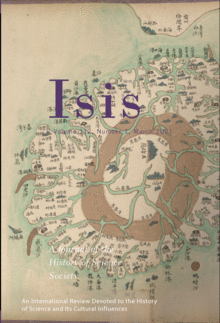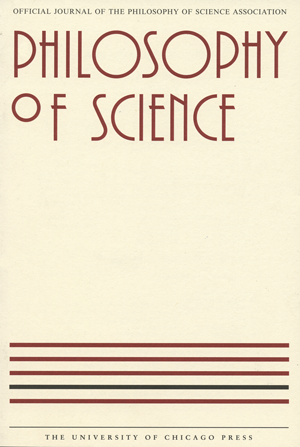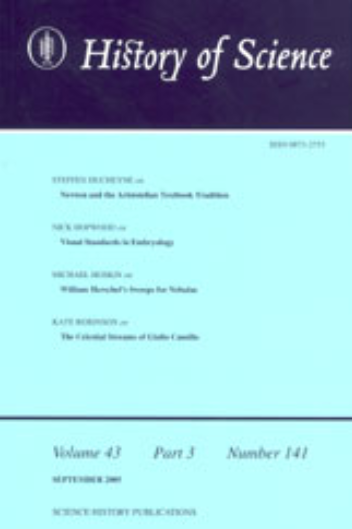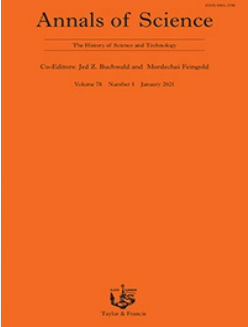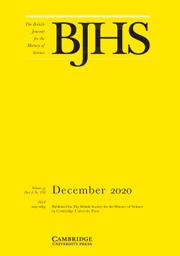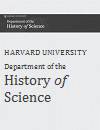JOURNAL OF DIALECTICS OF NATURE
A Comprehensive, Academic Journal of the Philosophy, History, Sociology and Cultural Studies of Science and Technology
Latest Articles
View all

-
Supervenience Dualism and Panpsychism: A Study in Panpsychism Based on System Monism Abstract: With the development of modern science, the ancient panpsychism rises quietly, which has got not only responses in microphysics, but also resonances in macrophysics and cosmophysics. When the probability wave described by the wave function is interpreted as a belief wave from the perspective of probability philosophy, many puzzles are eliminated, so that the micropsychism can be strongly supported. The neutral monism of James and Russell has a great influence on the contemporary panpsychism. By comparing the two, we draw the enlightenment of system panpsychism; and strengthen the purpose panpsychism and system panpsychism from Kant’s transcendental teleology. Furthermore, we illustrate a new panpsychism—supervenience dualism based on system monism. Everything is a system, which is both the program of system ontology and the fact of contemporary science, therefore, micropsychism, macropsychism and cosmopsychism belong to system panpsychism with supervenience dualism as its internal composition. Key Words: Panpsychism; System monism; Supervenience dualism; Neutral monism; Schrödinger’s CatIssue:Volume 47, lssue 10, October 2025Page: 1-11
-
A Preliminary Exploration of Narrative-principlist Ethics Abstract: Narrative ethics emerged in the mid-1980s as an attempt to redress the defects of principlist ethics. This article introduces the differences and consensus among scholars in defining narrative ethics, and discusses the debate over narrative consistency in the medical practice of narrative ethics. It proposes to replace the concept of narrative consistency with that of narrative inertia, and advocates for moral self-definition and dialogue to overcome narrative inertia. The most ideal way to implement dialogue is through narrative ethics consultation. The effective organization of the said consultation relies on the combination of narrative ethics and principlist ethics, namely narrative-principlist ethics. Key Words: Narrative ethics; Narrative consistency; Narrative inertia; Narrative ethics consultation; Narrative-principlist ethicsIssue:Volume 47, lssue 10, October 2025Page: 39-47
-
The Interleaved Changes and Era Characteristics of Agricultural and Political Districts in Hanzhong Prefecture During the Ming and Qing Dynasties Abstract: During the Ming and Qing dynasties, agricultural development and administrative adjustments in Hanzhong Prefecture exhibited dynamic interactions. Demographically, the region underwent four distinct phases: growth in the early-mid Ming, sharp decline during the Ming-Qing transition, recovery in the Qianlong-Jiaqing era, and gradual decrease after the Daoguang reign. Agricultural expansion progressed from plains to mountainous areas, peaking in the Qianlong-Jiaqing period with only brief abandonment in the early Qing. Correspondingly, administrative structures underwent frequent reorganizations from the mid-Ming onward, stabilizing only by the Qianlong-Jiaqing era after repeated divisions and additions. The study reveals that population fluctuations directly drove administrative changes, while agricultural innovations introduced by migrants served as the underlying catalyst. Through land reclamation and technological improvements, regional resources were effectively utilized, ultimately shaping the stable county-level administrative framework by the late Qing. This historical process not only elucidates the evolution of human-land relations but also provides valuable insights for contemporary ecological conservation efforts in the Qinling region. Key Words: Ming and Qing Dynasties; Hanzhong Prefecture; Agricultural technology; Administrative areaIssue:Volume 47, lssue 10, October 2025Page: 55-65
-
Interpretation in the Dimension of Social Philosophy of Opportunities for Technological Achievement Transformation Abstract: Transformation of scientific and technological achievements is an important concept that has emerged in the context of contemporary Chinese science and technology management, and has always been an important carrier that reflects the new dynamic relationship between science and technology. The front-end of technological achievements is linked to the evolution of knowledge itself, and the end is linked to innovative practices of transformation, which presents an effective knowledge form, embodies the nature and essence of knowledge and its limits; the opportunity for transformation stems from the attribute of the utility value of the achievements of science and technology. Scientific knowledge that represents has the instrumental imagery, which may enter practical operations under the influence of social utility concepts. The opportunity of transformation of scientific and technological achievements provides an opportunity for the formation of mutual construction of scientific and technological achievements and society, and becomes an important force for social change. Interpreting the opportunities for the transformation of technological achievements from a philosophical perspective can examine the social action phenomenon of the integration and development of technology and society. Key Words: Technological achievements; Transformation opportunities; Opportunities for the transformation of technological achievementsIssue:Volume 47, lssue 10, October 2025Page: 77-84
-
Hyman Bass: The Founder of Algebraic K-Theory Abstract: Hyman Bass was a prominent mathematician and mathematics educator in America in the 20th century, and the recipient of the National Medal of Science in 2006. Bass made significant contributions to algebraic K-theory, number theory, group theory and algebraic geometry, and founded the branch of algebraic K-theory. He served as president of the American Mathematical Society and the International Commission on Mathematical Instruction, and had a profound impact on the development of mathematics and mathematics education. In addition, Bass and his disciples also maintained close academic connections with Chinese mathematicians, thereby indirectly contributing to the development of modern mathematics in China. Key Words: Hyman Bass; Algebraic K-theory; Mathematical education; American Mathematical SocietyIssue:Volume 47, lssue 10, October 2025Page: 111-121
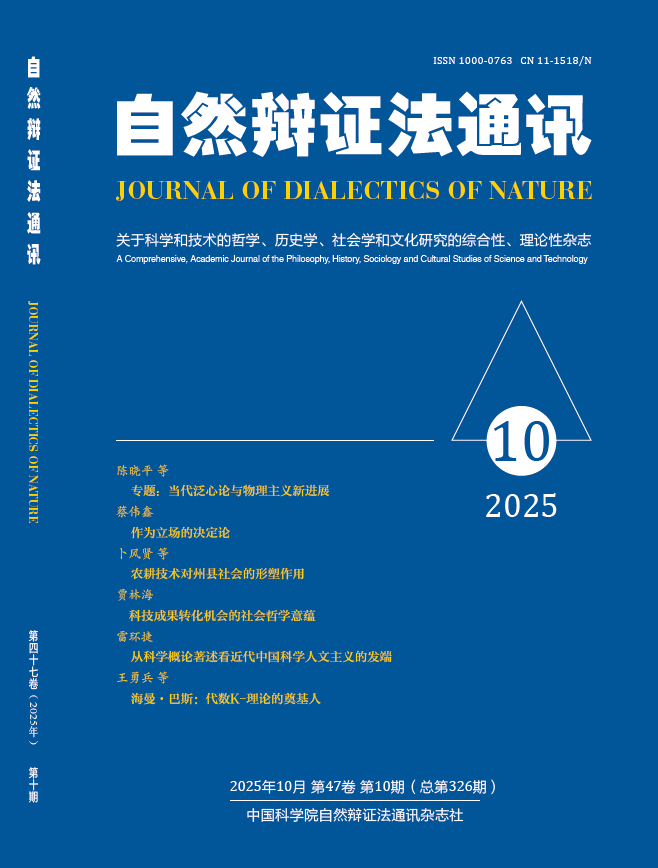
Hot Articles
View all
-
How Could AI Develop Its Self-consciousness? Abstract: The danger of AI will come from its self-consciousness rather than its capacity. AI would be a challenge to mankind if it develops a capacity for reflection on the system of its own, so that it would know how to remake its system with new rules, especially when it could invent its own language for all purposes, equal in capacity to human natural language, it could do anything it would. And AI would be most dangerous if it would be able to learn human desires, emotions and values, because all hostilities are based upon human desires and values.
-
From A Man-Machine Relationship to Inter Human Relations: Definition and Strategy of Artificial Intelligence Abstract: In order to distinguish the intelligent machine as a tool from the robot as a subject, the definition of human must change from essentialism to functionalism. So far, artificial intelligence has gone through three stages of development: formalization, empiricization and rationalization, but it is still not in the structure, but in the function of simulating human thinking. Only a functionalist definition of human beings can be compatible with the future of new species and new humans-"uncontrolled" robots. If "uncontrolled" robots emerge, the relationship between natural person and robot will develop from human-machine relationship to inter-human relationship. This relationship is neither the relationship between man and machine, nor the relationship between man and animal, nor the relationship between natural people. Natural people should not adopt the previous strategy to treat robots. Human supremacism is not self-evident. Natural man's self-re-evolution, man-machine parallel and man-machine fusion are feasible schemes for natural man to avoid being overtaken, replaced and eliminated by robots.
-
Non-Reductive Explanation in Biology: Context Arguments Abstract: Biological practice over the last several decades has shown that in many cases we cannot properly explain a higher-level phenomenon of interest only in terms of phenomena or mechanisms provided by lowerlevel explanations; to properly explain the higher-level phenomenon, information provided by the higher-level is also indispensable. One typical case is the context dependence of biological phenomena, namely, the occurrence of a higher-level phenomenon depends on its relevant environmental factors (e.g. cellular environments) which cannot simply be reduced to the lower-level (e.g. molecules) . On the other hand, the occurrence of the higher-level phenomenon can sometimes be independent of its lower-level underpinnings, since a change to the lower-level underpinnings does not necessarily result in corresponding changes in the higher-level. Facts based on these two sides constitute a ground for rejecting explanatory reductionism. This essay, by reference to examples drawn from biological practice, will discuss how contextual facts pose a challenge to explanatory reductionism.
-
Organismic Traits and the Explanatory Scope of Natural Selection Abstract: Could natural selection explain why an individual organism has the traits it does? Debates over this topic have lasted for decades in the philosophy of biology. Indeed, the negative view and the positive view have different interpretations of the very why-question. The two sides have posited different explananda: a whole explicit fact (for the positive view) vs. a particular contrastive focal aspect of the explicit fact (for the negative view). Both explananda are reasonable and acceptable. However, elimination of misinterpretation does not render the negative view true. Rather, I argue that the negative view as a universal proposition is indeed untenable, for there are counterexamples for it in cases of symbiosis, lateral gene transfer, and genic selection. Key Words: Organismic traits; Natural selection; Scientific explanation
-
Dr. Edward Hume: The Intermediary Who Promoted the Rockefeller Foundation’s Initial Public Health Practice in China Abstract: The Rockefeller Foundation intended to carry out hookworm disease treatment and prevention campaigns in many countries around the world at its initiation. Dr. Edward Hume, as the founder of the Yali Hospital and the Hsiang-ya Medical College in Hunan, tried to seek financial support from the Rockefeller Foundation in order to fulfill his plan in public health education in China. He used his connections and influence in Hunan to help the Rockefeller Foundation introduce the hookworm disease treatment and prevention project into China. In this transnational undertaking, Dr. Hume essentially played the role of an intermediary, who considerably promoted the Rockefeller Foundation’s earliest public health practice in China.
-
Kinnosuke Ogura: A Pioneer in The Study of Social History of Mathematics Abstract: Kinnosuke Ogura was a renowned mathematical historian and educator in modern Japan. He has made outstanding contribution to the study of mathematics education and the history of mathematics. In the filed of mathematical history, he began to study the social problems of mathematics in the late 1920s. He believed that the sociality of mathematics must be concretized in the study of mathematical history, and investigated the relationship between the ideology, the economic foundation and the development of mathematics. He was a pioneer in the social history of mathematics. Key Words: Kinnosuke Ogura; Mathematical history; Sociality
News & Events
Outside Links
JOURNAL OF DIALECTICS OF NATURE
- Contact Us
- Address: No.19A Yuquan Road, Beijing, 100049, China
- Phone: +86-10-88256007
- Email:jdn@ucas.ac.cn

Follow Us
© 2014 Copyright of the University of Chinese Academy of Sciences
© 2014 Copyright of the University of Chinese Academy of Sciences

